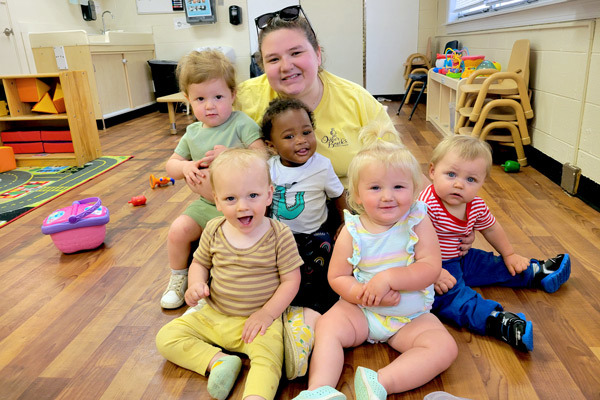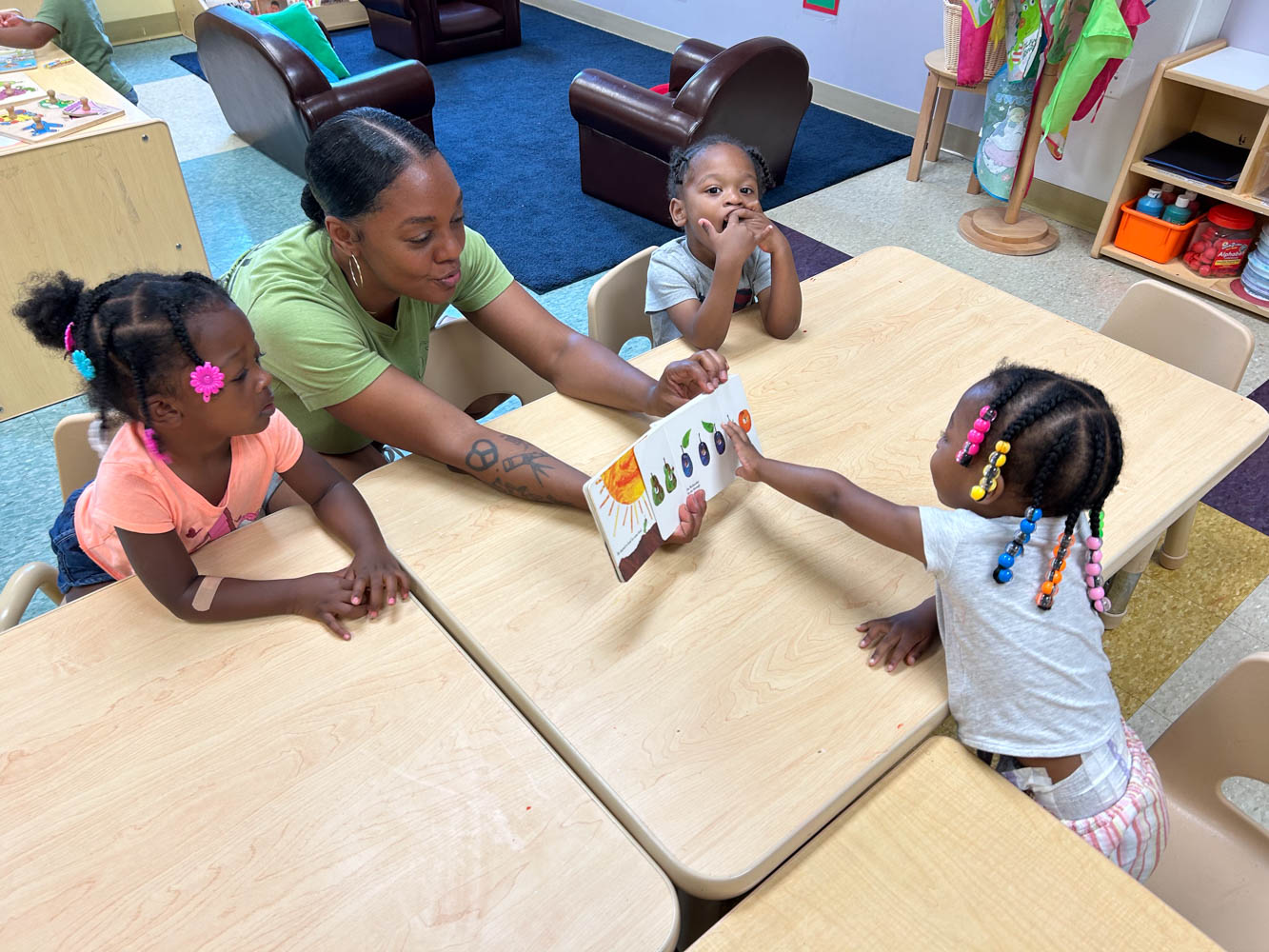A Parent’s Guide To Choosing The Best Childcare Near Me Centers
The Role of Day Care in Fostering Social Abilities and Very Early Understanding
Daycare offers as a substantial environment for young kids, helping with vital social interactions that advertise early discovering. In this organized setting, children involve with peers and caretakers, establishing necessary interaction and teamwork abilities. As they navigate play and numerous tasks, they discover to settle problems and develop emotional intelligence. Understanding the nuances of these interactions exposes the extensive impact childcare has on a child's growth, shaping their future relationships and academic preparedness. What particular skills do kids get in this setup?
The Significance of Social Interaction in Childcare
While lots of moms and dads acknowledge the significance of early childhood years education and learning, the role of social communication in daycare is typically underestimated. Daycare setups provide youngsters with invaluable chances to engage with peers, promoting essential social abilities. Throughout these developmental years, youngsters learn to navigate different social characteristics, such as sharing, participation, and dispute resolution. Engaging with varied age teams and individualities boosts their capacity to adjust to different atmospheres and establish compassion in the direction of others.

Structure Communication Abilities Via Play
Play acts as an effective medium for kids to develop important communication abilities in childcare setups. Through numerous play activities, kids talk, share their ideas, and find out to pay attention to others. Role-playing games, for instance, encourage them to utilize language in different contexts, advertising vocabulary development and understanding of social cues.

Narration during play allows kids to communicate feelings and concepts, helping them develop narrative skills and self-confidence in their verbal expressions. Generally, play not just acts as an enjoyable leisure activity but also as a crucial platform for establishing the interaction abilities necessary for successful social communications in later life.
Urging Collaboration and Team Effort
Participation and synergy are vital abilities that youngsters can grow in childcare environments. With different group activities, such as developing jobs or joint video games, youngsters find out to share duties and work toward common goals. These interactions foster an understanding of the relevance of paying attention to others, working out roles, and jeopardizing when needed.
In day care settings, caregivers often create opportunities for youngsters to take part in team effort by encouraging them to take part in group jobs. This not just helps children create social bonds but additionally grows a sense of belonging and community.
As they browse these participating experiences, children gain useful understandings into the dynamics of collaborating with peers. They learn to appreciate varied viewpoints and acknowledge that each member contributes uniquely to the team effort. Ultimately, these very early lessons in participation and teamwork prepared for healthier relationships and efficient cooperation in future social and scholastic setups.
Structured Understanding Activities and Cognitive Development
Structured knowing tasks play an essential role in cultivating cognitive advancement in young youngsters (Child Care Near Me). These activities, that include challenges, narration, and hands-on experiments, stimulate important reasoning and analytical abilities. In a childcare setting, organized learning motivates youngsters to involve with their peers, enhancing their ability to procedure information and understand different principles
Via directed play and interactive jobs, youngsters create foundational skills such as numeracy and proficiency. Activities focused around numbers can assist kids grasp mathematical ideas, while storytelling enhances language purchase and understanding. In addition, organized knowing permits instructors to assess developmental progress and tailor activities to private discovering demands.

Incorporating a diverse series of organized tasks not just advertises cognitive development however likewise prepares children for future scholastic success. By providing a balanced setting that cultivates exploration and inquiry, day care programs play an important role in forming the cognitive capacities of young students.
Cultivating Psychological Intelligence and Confidence
Psychological intelligence and confidence are vital elements of a child's growth, matching the cognitive Child Care Near Me skills promoted through structured understanding activities. In childcare setups, youngsters are provided with possibilities to share their feelings and engage in social interactions, which are vital for building psychological understanding. With led play and group tasks, kids discover to identify their sensations, acknowledge those of others, and create compassion.
Additionally, communication with peers and caretakers assists to cultivate self-confidence and resilience. Positive reinforcement and inspiration from adults empower kids to take risks and face difficulties, promoting a feeling of achievement. As they browse social characteristics, youngsters construct confidence in their capacities to communicate, work together, and settle disputes - Childcare North York. This nurturing setting enables the steady advancement of psychological knowledge, which is necessary for future social partnerships and general health. As an outcome, daycare plays a significant function in cultivating both emotional intelligence and confidence in little ones
Often Asked Inquiries
Just How Can Moms And Dads Choose the Right Daycare for Their Youngster?
Parents should think about aspects such as place, personnel credentials, safety and security standards, curriculum, and reviews from other parents when selecting the right daycare for their child, guaranteeing it aligns with their youngster's developing demands and family members worths.
What Age Is Ideal for Beginning Day Care?

Just How Does Day care Influence Children's Habits in your home?
Childcare usually positively affects children's habits at home by improving social abilities, promoting self-reliance, and motivating emotional law (Childcare North York). Therefore, children may show better communication and teamwork, bring about even more harmonious household characteristics
Exist Any Downsides to Day Care Presence?
Yes, there are disadvantages to childcare attendance, including prospective splitting up anxiety, exposure to health problems, and irregular caregiving. These elements can influence a child's psychological health and modification in your home, impacting general family members characteristics.
Just How Can Moms And Dads Assistance Social Abilities Found Out at Childcare?
Moms and dads can sustain social abilities learned at daycare by assisting in playdates, motivating participating activities, modeling favorable communications, discussing sensations, and enhancing sharing and interaction in the house, thereby improving their youngster's social growth and self-confidence.
Day care serves as a substantial setting for young kids, helping with crucial social communications that promote early understanding. Childcare settings supply youngsters with important chances to engage with peers, fostering essential social abilities. Play offers as a powerful tool for youngsters to construct critical interaction skills in childcare setups. In daycare setups, youngsters are supplied with opportunities to express their feelings and involve in social interactions, which are vital for building emotional understanding. Daycare often favorably affects kids's behavior at home by improving social skills, advertising independence, and encouraging emotional regulation.